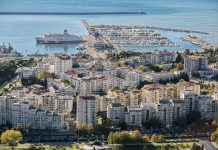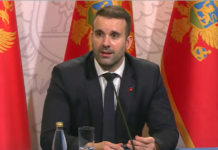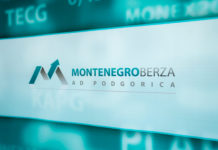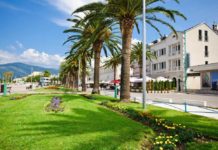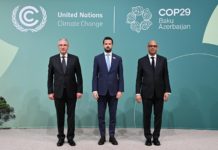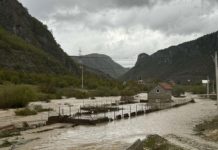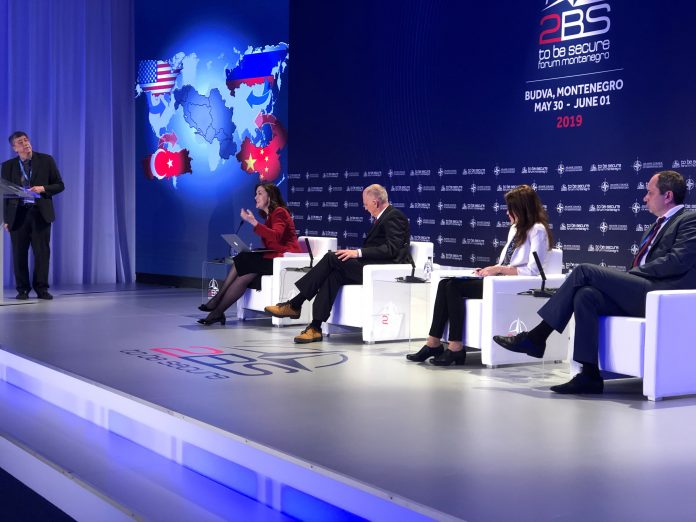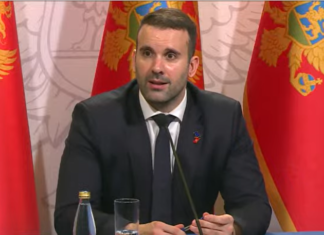Budva, (MINA) – The Western Balkans has changed for good following the Dayton agreement, but the ideas of pan-nationalism still have not been defeated, and slowing down on the EU path would only grew them stronger, presidents of Montenegro and Kosovo Milo Djukanovic and Hashim Thaci stated.
They took part in a panel discussion “Presidential discussion: In the Mind of a Leader” during the 9th To Be Secure (2BS) Forum in Budva.
Speaking about the biggest worries of a leader, Djukanovic said that the main concern is “how to achieve what we have committed ourselves to as our strategic task”.
“It is clear now, at least regarding Montenegro, that we are on a turning point to return this region to its European home”, said he.
The Montenegrin president claims that the strategic political fight is being fought in the Balkans, and that there are two powerful movements.
“The first one is led by those who want to bring those countries to European and Euro-Atlantic system of values and that second one, not so powerless, is the one trying to preserve the status quo. This is not only the Balkans’ but also European and Euro-Atlantic issue”, Djukanovic argues.
He remarked that Montenegro is a leader on the EU path and that it is important to strengthen regional cooperation, but that it would be even more successful if European and Euro-Atlantic communities would recognize it as its own interest and support it in that intent.
Kosovo President Hashim Thaci said that official Pristina is working hard on improvement of the relations and closing the open issues between the countries of the region, and according to him the main challenge is speeding up the EU accession process.
Thaci claims that the EU is holding those processes back, having a strict, frozen position, in particular towards Kosovo.
He claims that albeit Kosovo met all the requirements, in particular in regard to visa liberalization, the award failed to be delivered, and the citizens cannot understand that. “I believe that double standards are being used”, said Thaci, adding that the leaders are aware that the European and Euro-Atlantic integration are the only alternative.
Speaking about setting the balance between creation of the identity and the sense of national entity, Djukanovic said that the key problem lies in historical lagging behind of the Western Balkans.
“Do not be carried away that this region is definitely and superiorly moving towards the European and Euro-Atlantic system of values”, said Djukanovic adding that the fight is still ongoing.
Speaking about nationalism, Thaci said that everyone has learnt something from the past and what kinds of tragedies nationalism leaves behind.
He remarked that the EU should be more apt to accept the countries of the region and integrate them faster, since, as he said, the Union will never be complete without the Western Balkans.
Thaci stated that normalization of the relations with Serbia will happen if the EU offers faster perspective and not isolate them. In case of isolation, nationalism and populism will grow, which is not in line with the Euro-Atlantic values.
He said that postponing of the enlargement has negative effect for the countries of the region and expressed wish that new, more concrete approach towards the Western Balkans is recognized now.
Djukanovic claims that the main issue in the Balkans is completion of the dialogue between Belgrade and Pristina, adding that, if this chance is lost, the years will be lost.
Thaci said that the activities carried out in Kosovo in past couple of days were directed against the criminals, and not the members of some nationalities, and that no communities can be immune to Kosovo police operations in case of violation of the law.
He added that the wisest thing that Serbia could do is to let the community in the north to integrate, and remarked that majority of Kosovo citizens is ready to live together.
Asked if the negotiations between Serbia and Kosovo are losing their momentum and if there was an option to return to dialogue, Thaci said that the dialogue is in crisis and that many factors caused it.
He said that numerous benefits, among which is transformation of Kosovo society, would be achieved if Kosovo and Serbia would succeed in reaching an agreement this year.
Thaci claims that Serbia ran an aggressive campaign in order to prevent the international consolidation of Kosovo and added that he did not advocate for “the Palestinian path” of Kosovo.
He added that the exchange of territories between Serbia and Kosovo was never on the table, but that demarcation must be completed through the talks.
Longer version of article is available on a link MINA ENGLISH SERVIS




